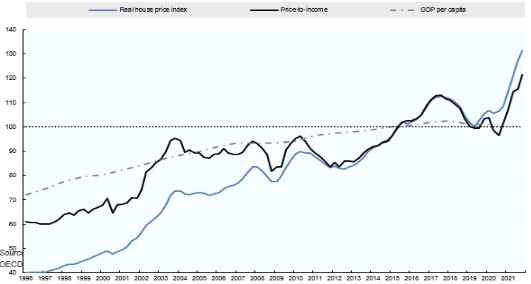Thucydides, in his History of the Peloponnesian War, is composer of this account of the wars between Athens, her allies, and Sparta, and her allies in the fifth century BCE. Thucydides on Cleon and Pericles. What we know about Pericles (495-429 BCE) and Cleon (died 422 BCE) is predominantly drawn from this ancient source. Therefore, Thucydides’ likes and dislikes, do play a part in how we as readers interpret the policies, persons and events, which surrounded the Peloponnesian Wars. Pericles is placed by Thucydides, as a character with a substantial role in his narrative of events and causes, once the historical preamble and the preliminaries involving Corinth, Corcyra, Potidaea, Sparta and Macedonia have been navigated.[1] He is introduced shortly after Cimon’s death at Kitium, at the head of an Athenian army dealing with the Euboean revolt.[2] Thucydides, immediately, has Pericles as the target of the Spartans’ political embassies to Athens.[3] He is the most powerful Athenian of his time, according to Thucydides; and it is the inclusion of speeches accorded to him, which most effectively personalise and dramatise this history.
“There is one principle, Athenians, which I hold to through everything, and that is the principle of no concession to the Peloponnesians.”[4]
Ancient Historian Thucydides: Pericles & Cleon
Thus, begins the first recorded speech of Pericles in the Thucydidean account. The author informs readers that his record of speeches included in his History, are not verbatim accounts, but, rather, as near to, and in the spirit of, what was demanded by the various occasions.[5] The question of whether we, as readers, are actually listening to Pericles speaking or Thucydides, can never be entirely answered. This is a dramatic rendition of Athenian history and should be accorded that status throughout. Thucydides was a “younger contemporary” and related, on his mother’s side, to Pericles, through the Alcmaeonid family line.[6] It is important to note that Thucydides begins this first Periclean speech with an unambiguous statement, as regards Pericles’ approach to the Lacedaemonian Peloponnesians. Pericles’ foreign policy is firm and unyielding toward the Spartan demands relating to treaty conditions of the Thirty Years’ Peace. Pericles is strident about Athens being treated as “equals” by the Lacedaemonians.[7] There is a sense here that the demos requires regular reminding about their status as an imperial power, especially when faced with impending Spartan aggression.
Investigating Thucydides on Cleon & Pericles
Loren Samons II, makes an insightful point, with his assessment concerning the absence of Homeric status in the origins of the Athenians. They are not mentioned as the suppliers of ‘first rank’ heroes in either the Iliad or Odyssey. The Athenian heritage lacks a truly glorious past and, therefore, that ‘lack’ hangs heavily over them, perhaps, driving their appetite for contemporary power and glory.[8] Their claim to autochthony, sets them apart from the Spartans, Thebans and Argives and their archaic glories. Samons II, however, could have emphasised this further, in conjunction with the special nature of the newly democratic system of governance, as an insight into this peculiar juxtaposition of empire and democracy. Why and how these two strange bedfellows coexisted in Athens in the fifth century, remains a fascinating conundrum. Pericles stands firm in his support for war with Sparta in 431; and after spelling out the prosaic Athenian advantages to their military position, he evokes the glorious opportunities this war entails.[9]
Pericles is afforded three speeches in Thucydides’ History and on this basis, it is reasonable to suggest that his policies and actions are well represented. Cleon, in contrast, is a mere bit player on Thucydides’ stage. The reader is introduced initially to Cleon in relation to the Athenian debate on the fate of the Mytilene population after their failed revolt.[10] This city in Lesbos had been a non-subjected ally of Athens for some thirty years, prior to revolting. Thucydides, immediately shows his hand and labels Cleon as – “the most violent man at Athens”, and the Athenian who carried the initial motion to put the Mytilenians to death.[11] Cleon is, what was once called ‘new money’, in that he came from a family of tanners and not from the Eupatridae. Aristophanes would satirically attack Cleon on this basis, comparing him with a sausage-seller in the agora in his play The Knights.[12]
“You possess all the attributes of a demagogue; a screeching, horrible voice, a perverse, crossgrained nature and the language of the market-place. In you all is united which is needful for governing.”[13]
‘Demagogue’ is one of those terms, which has come down to us from ancient Athens, and yet still has political currency in today’s democratic systems. Although, Lane correctly points out that its use was not accompanied by a pejorative meaning, until the time of Plato, many decades after Cleon.[14] Perhaps we have Aristophanes and his take on Cleon to thank for this. In many ways, Pericles and Cleon are first and second generation demagogues respectively. Their policies can be interpreted as pandering to the people, appealing to the interests of the demos to garner support for the political aspirations and strategies of these two statesmen. Demagoguery emerged as a consequence of this new ‘democratic’ system of government in Athens in the fifth century BCE. Getting the people ‘on side’ became part of the job description, if a political leader was to be effective.
The timing of when a certain policy is instigated, is also paramount to the overall evaluation of a policy’s advantage or disadvantage. Pericles, as a military general, was not always so determined to engage the Spartans, as can be adjudged by his, apparent, bribery of Pleistoanax, according to Plutarch.[15] Spending ten talents on getting the Spartan army to leave off sacking Attica and to return home in 446. Plutarch cites Theophrastus as his source, and indicates it was an ongoing annual payment of ten talents from Pericles to Sparta. Pericles, also, introduced payment for jury members in the Heliaia around 450. The democratically aligned Athenian, would use public money to fund his popularity and policies. In contrast, Cimon, had used his private wealth to buy support in Athens. Pericles’ policies can be seen as foundational in the establishment of a powerful working demos. Cleon would later increase the payments to jurists up to three obols.[16] These policies provided both these statesmen with influence and power within the democratic system in Athens. The Athenian naval fleet was mainly made up of commoners from Athens, and other parts of Hellas, they too received payments as state funded public servants.
Cleon, according to Thucydides, harangues the Athenian assembly about their weakness in reconsidering the fate of the Mytilenians. He identifies the ill-fitting concepts of democracy and empire co-existing in Athens, and adjudges democracy as wanting in this regard.[17] “Your empire is a despotism”, Cleon echoes Pericles here, in his third and final speech, when he reminds Athenians:
“What you hold, is, to speak somewhat plainly, a tyranny: to take it perhaps was wrong, but to let it go is unsafe.”[18]
Comparisons have been made on this basis about the similarities of the two demagogues’ foreign policies, but there are important differences to take into consideration. Only from a distance do they share defining characteristics.[19] Pericles is entreating Athenians to bear with the vicissitudes of plague and Spartan invasion of Attica, and to resist seeking peace with the Lacedaemonians. Pericles has, according to Thucydides, led Athens into war with Sparta on the basis of their naval superiority, economic advantage and their dignity.[20] He identifies their island like strengths and warns them to “vigilantly guard” their city and status as a sea power. Vitally, Pericles calls upon Athens to resist opening additional theatres of war, whilst prosecuting the conflict with the Peloponnesians. Thucydides with the benefit of hindsight knows that this is the determining factor in Athens’ eventual fate. Pericles is presented as measured and cautious in his aggressive leadership of the polis. Pericles would meet considerable internal opposition to his policy of not meeting the Spartan army’s invasion of Attica and withdrawing the population within the walls of the city. Cleon would side with the aristocratic Athenians on this issue, against the Periclean policy, and lead vitriolic attacks upon Pericles, accusing him of cowardice.[21] Pericles holds firm to his strategy and embarks Athenian forces to attack the Peloponnesians by sea; and to distribute largesse from conquered lands to the Athenians.[22] Thucydides informs readers that Pericles was fined, and Plutarch states he was “temporarily stripped of his command”.[23] Thucydides ensures that readers are aware that Pericles has an overarching strategy, and policies which support this; he does not easily buckle or change with the wind on the basis of what is popular.
Cleon is represented in stark contrast to this. The reader of the History meetshim demanding uncompromising brutality in the execution of the Mytillenian males. Cleon is particularly concerned with the external politics of Athens appearing less than totalitarian in her relations with her foreign allies. Thucydides attacks many aspects of Athenian democracy via the words attributed to Cleon in the Mytilene Debate. The incompatibility of a democratic system operating an aggressive imperialism, lies at the heart of much of the Histories. Cleon manipulates events and situations, with his words, to try and paint the Mytilenians as opportunists, rather than uncomfortable allies, who regretted their ongoing relationship with an imperial Athens.[24] Andrews emphasises Cleon’s appeal to the Athenian people on the basis of the justice of their position, as non-aggressors taken advantage of by a former ally, dove-tailing with their own self-interests.[25] The Athenian economy is dependent upon the tribute it collects from its allies; and this drives Cleon’s push to make an example of the Mytilenians to Athens’ remaining allies.[26] The arguments about the nature of justice and Athenian foreign policies in Thucydides, as Orwin elucidates, maintain their relevance to political issues in our world today.[27] This writer thinks about Australia’s border control policies, as international deterrent to refugees.[28]
Cleon artfully ignores the fact that the oligarchs in Mytilene chose to go to war with Athens, whilst it was the commoners who chose to surrender to the besieging Athenians, on the condition their embassies would be heard in Athens. Cleon is quite prepared to punish all Mytilenians for the value of sending a powerful deterrent throughout Hellas. There is no room in Cleon’s Athenian foreign policy for, “pity, sentiment, and indulgence.”[29] The price of empire, in his book, is an intransigent and unflinching policy of death to all rebellious allies. In many ways, this bears similarity with the Lacedaemonian policy toward their helots.[30] The enslavery of others, becomes a strait jacket for those that institutionalise the enslavement, or subject status, to their benefit. Parallels about the downfalls of both the Spartan and Athenian empires, involving the consequences of the subjugation of fellow Greeks, definitely have currency, in this writer’s view.
Thucydides representation of Pericles, especially through the Funeral Oration, makes he and Athens indistinguishable. Pericles spells out the positive qualities of a democracy: its equitability, its respect for the privacy of its citizens, and its law-abiding nature.[31] This speech praises multiple aspects of the Athenian polis; and then calls upon all her citizens to:
“realize the power of Athens…feed your eyes upon her…till love of her fills your hearts…”[32]
Pericles is given the stage to enunciate the arete, which lies at the core of Athenian democracy and imperialism. His speech tells readers that true heroes sacrifice their lives for the honour of their city, and live forever gloriously in the memories of their kith and kin. Thucydides ensures, through the quality of this speech, that Pericles is forever associated with the best of Athens. Orwin clearly views it as evidence that Thucydides was sympathetic to the Periclean policies and their goals.[33] In fact, its presence and substantial length, shouts out Thucydides’ ‘like’, or, perhaps, ‘love’ of Pericles, in this writer’s view. A reader of the Funeral Oration cannot fail to observe the gravitas, the pathos, and the dramatic structuring of the speech. It is not flowery or laden with mythical allusions, however, like later panegyrics by people like Isocrates.[34] It captures the pragmatic qualities of Pericles, as it directs the audience to a more contemporary Athenian definition of nobility, rather than anything Homeric in nature.[35] When you compare this presentation of Pericles, with Cleon’s representation in the History, you can sense the controlling hand of Thucydides the director at work.
Cleon was not from the Eupatridae, Thucydides was, Aristophanes was, and Pericles was, also. Athenian democracy was launched, in many ways, by Cleisthenes, another from the Eupatridae, late in the sixth century.[36] As Pericles confirms in the Funeral Oration, the Athenian constitution sets the pattern, rather than imitating any other.[37] It is a nascent political construction, almost an experiment in governance, and it is viewed through the eyes of, writers like Thucydides, who are more familiar with oligarchies and tyrannies. Aristotle, writing around a century later, was another ancient writer more at home in the oligarchic camp and none too sure about this democratic system. He would describe Athens as “reasonably” well run under Pericles, but that it declined after his death, due to “a leader who was not approved by the respectable citizens” – Cleon. Aristotle repeats Thucydides’ statement about Cleon’s violence in corrupting the Athenian people.[38] I agree with scholars like Woodhead, who interpret a distinct discomfort in Thucydides with the ‘rabble rousing’ aspect of the democratic system. The demagogues are branded negatively by both Thucydides and Aristophanes. When Pericles dominates the Athenian demos, the system is tolerable to these aristocrats, but when the son of a tanner takes centre stage – it’s like a slap in the face from a sausage-seller.[39] Ironically, Cleon too, criticises the Athenian demos for its failings of weakness in dolling out mercy to the Mytilenians. However, it is understandable that such a new constitutional system would attract criticism in its formative years from both opponents and proponents. Athenian democracy was a work in progress, probably no one was quite sure whether it would last. Plutarch offers a personal insight into democracy’s status in the ancient world, albeit half a millennium later, when he writes:
“The multitude can have no greater honour shown them by their superiors than not to be despised.”[40]
Faint praise, indeed.
There is an argument to be made that Cleon has been, retrospectively, made to wear the brunt of the blame for the downfall of the Athenian Empire in 404. That every defeat and disaster requires a scape goat and fall guy. Pericles took Athens into the Peloponnesian War, died, just, several years into the lengthy conflict, and Cleon, whose policies were similar, was around, somewhat, closer to its conclusion; along with Alcibiades, of course. Plus, Cleon’s policies lacked the wisdom of Pericles’ concept of “limited war”.[41] In addition, he was not from the right circles, thus, ripe for the critical opprobrium, which abounded at the fall of such a lauded imperial city. This writer wonders whether there has been a class struggle going on, ever since, in historiography, generally, and on this issue.[42] It is possible that successive scholars, down through the ages, may have taken sides in the anti-Cleon camp, depending on their own social class and position. History has a strange way of endlessly repeating itself, especially when it comes to such perennial themes as station and status. Classical studies have long attracted the upper stratum of society and, perhaps, this has condemned Cleon in perpetuity on the basis of being the ‘wrong sort of chap’. There is plenty of smoke around Cleon, but is there fire? Plutarch, the biographer, mentions Cleon’s “disgusting boldness” and declares his rapacious nature. He informs readers that Cleon’s political influence was derived from “giving frequent jobs for pay” and his “versatile buffoonery”.[43] Aelian touches on Cleon in Aristophanes but, also, gets it all wrong regarding Socrates.[44] Dorey recounts a snippet from Aelian, citing Critias, regarding Cleon’s avaristic motivation for his political career.[45] It is Thucydides, however, who has determined history’s evaluation of Cleon.
Thucydides did understate Cleon’s achievement in Sphacteria and continued that tone into his account of the Amphipolis campaign. The language he employs when recounting Cleon’s military campaigns used expressions like: “Cleon prevailed on the Athenians”, “Cleon was at length obliged to do as Brasidas expected”, “His soldiers…reflect on the weakness and incompetence of their commander (Cleon)” and “He thought to retire at pleasure without fighting”.[46] Thucydides portrays Cleon as a less than able commander, who succumbs to an ignominious death on the battlefield. There is only Diodorus Siculus, as an alternative source, to contradict Thucydides on this score. He recounts valour and brilliance on both sides, albeit praising Brasidas the more.[47] Thucydides’ parting shot at Cleon, categorises him as an opponent of peace, on the basis that the noise of war would hide his crimes and slanders in the assembly.[48] The author’s dislike of Cleon is palpable, but at the same time it does not render his criticisms invalid.[49] Thucydides was a strategos himself to Thasos in 424, and was blamed for Athens’ loss of Amphipolis to Brasidas the Spartan general.[50] He was exiled from Athens on this basis, which must have been a bitter pill to swallow, and Cleon proposed the decree. Thucydides and his forces arrived too late, with the Amphipoleans, having surrendered to the Spartans and Brasidas’ moderate terms.[51] Amphipolis was adjudged to be of considerable importance to the Athenians on a number of grounds, including strategic positioning, tribute revenue, and for its natural resources.[52] Marshall concludes that Thucydides’ bias against Cleon is “systematic” and, in his view, reaches its apogee at 4. 28.5. Here the Athenian soldiers hoped, firstly, for Cleon’s death, and, if not this, to have defeated the Lacedaemonians, as next best. A more damning assessment would be hard to find in the circumstances. Fair comments and Cleon seem worlds apart in Thucydides.
© Robert Hamilton
BIBLIOGRAPHY
Ancient Sources
Aelian, Historical Miscellany, (Cambridge, 1997).
Aristophanes, The Knights, Retrieved from http://classics.mit.edu/Aristophanes/knights.html , Viewed 12 May 2017.
Aristotle and Xenophon on Democracy and Oligarchy, 2nd ed., (Trans. J. Moore), (Berkeley, 1986).
Athenian Tribute List, Stele II, Retrieved from http://drc.ohiolink.edu/handle/2374.OX/181278?order=ASC&rpp=20&sort_by=-1&value=Center%20for%20Epigraphical%20and%20Palaeographical%20Studies&etal=-1&offset=202&type=author&restrict=false&ztype=author&mode=browse&focusscope=2374.OX/1 Viewed 17 May 2017.
Herodotus, The Histories, Rev. Ed., (London, 1972).
Isocrates, To Demonicus, (Trans. G. Norlin), Retrieved from http://www.perseus.tufts.edu/hopper/text?doc=Perseus%3Atext%3A1999.01.0144%3Aspeech%3D1%3Asection%3D8 Viewed 17 May 2017.
Plutarch, Life of Pericles, Retrieved from http://penelope.uchicago.edu/Thayer/e/roman/texts/plutarch/lives/pericles*.html Viewed 13 May 2017.
Plutarch, Life of Nicias, Retrieved from http://penelope.uchicago.edu/Thayer/E/Roman/Texts/Plutarch/Lives/Nicias*.html Viewed 18 May 2017.
Thucydides, History of The Peloponnesian War, (Trans. JM. Dent) Retrieved from http://www.perseus.tufts.edu/hopper/text?doc=Perseus%3Atext%3A1999.01.0200%3Abook%3D1%3Achapter%3D114%3Asection%3D2 Viewed 5 May 2017.
Modern Sources
Andrews, J, “Cleon’s Ethopoetics”, The Classical Quarterly, Vol. 44, No. 1 (1994), pp. 26-39.
Andrews, J, “Cleon’s Hidden Appeals (Thucydides 3.37-40), The Classical Quarterly, Vol. 50, No. 1 (2000), pp. 45-62.
Boldt, A, “Ranke: Objectivity and History”, The Journal of Theory and Practice, Vol.18, Issue 4, (2014), pp. 457-474.
Dorey, T, “Aristophanes and Cleon”, Greece & Rome, Vol.3, No.2, (October, 1956), pp. 132-139.
Garber, M, “What We Talk About When We Talk About ‘Demagogues’”, The Atlantic, 10 December (2015), Retrieved from https://www.theatlantic.com/entertainment/archive/2015/12/what-we-talk-about-when-we-talk-about-demagogues/419514/ Viewed 12 May 2017.
Hayden. P, The Philosophy of Human Rights, (St Paul, 2001).
Lane, M, “The Origins of the Statesman-Demagogue Distinction in and after Ancient Athens”, Journal of the History of Ideas, Vol. 73, No. 2 (2012), pp. 179-200.
Lloyd, G, Disciplines in the Making: Cross-Cultural Perspectives on Elites, Learning, and Innovation, (Oxford, 2009). Retrieved from http://www.oxfordscholarship.com.simsrad.net.ocs.mq.edu.au/view/10.1093/acprof:oso/9780199567874.001.0001/acprof-9780199567874-chapter-4 Viewed 19 May 2017.
Lukacs, G, History & Class Consciousness, (trans. R. Livingstone), (London, 1967).
Manne, R, “Sending Them Home”, Quarterly Essay, Retrieved from https://www.quarterlyessay.com.au/correspondence/1262 Viewed 18 May 2017.
Marshall, M, “Cleon and Pericles: Sphacteria”, Greece & Rome, Vol. 31, No. 1 (1984), pp. 19-36.
Mitchell, B, “Kleon’s Amphipolitan Campaign: Aims and results” Historia, Vol. 40, pp. 170-192.
Orwin. C, The Humanity of Thucydides, (Princeton, 1994).
Rosenbloom, D, “From Poneros to Pharmakos Theater, Social Drama, and Revolution in Athens, 428-404 BCE”, Classical Antiquity, Vol. 21, No. 2 (October 2002), pp. 283-346.
Samons, L, Pericles and the Conquest of History: A Political Biography, (New York, 2016).
Spence, I, “Thucydides, Woodhead, and Kleon”, Mnemosyne, Vol.48, Fasc.4 (September, 1995), pp. 411-437.
Studer, P, Historical Corpus Stylistics: Media, Technology and Change, (London, 2008).
Tate IV, F, “Critical Race Theory and Education: History, Theory, and Implications”, Review of Research in Education, Vol.22, (1997), pp. 195-247.
Whitby. M, Sparta, (Edinburgh, 2002).
Woodhead, A, “Thucydides’ Portrait of Cleon”, Mnemosyne, 4th Series, Vol. 13, Fasc. 4, pp. 289-317.
[1] Thucydides, History, 1. 1-79.
[2] Ibid, 1.114.
[3] Ibid, 1.126.
[4] Ibid, 1.140.
[5] Ibid, 1.22.
[6] Samons II, L, Pericles and the Conquest of History: A Political Biography, (New York, 2016), p 2.
[7] Thuc. op. cit, 1.140.
[8] Samons II, op. cit. p.9.
[9] Thuc. op. cit, 1.144.
[10] Thuc. op. cit, 3.36.6
[11] Thuc. ibid.3.36.6.
[12] Aristophanes, The Knights 170-185.
[13] Aristophanes, The Knights 213-215.
[14] Lane, M, “The Origins of the Statesman-Demagogue Distinction in and after Ancient Athens”, Journal of the History of Ideas, Vol. 73, No. 2 (2012), pp 179-180.
[15] Plutarch, Life of Pericles, 23.
[16] Mitchell, B, “Kleon’s Amphipolitan Campaign: Aims and results” Historia, Vol. 40, p. 170.
[17] Thuc., op. cit, 3.37.1.
[18] Thuc. ibid.2.63.2.
[19] Marshall, M, “Cleon and Pericles: Sphacteria”, Greece & Rome, Vol. 31, No. 1 (1984), p. 19.
[20] Thuc. ibid.2.140-144.
[21] Plutarch, Life of Pericles, 33.6.
[22] Plutarch, ibid.34.
[23] Thuc. op.cit.2.65.3.
Plutarch, op.cit.35.4.
[24] Thuc. ibid.3.39.2.
[25] Andrews, J, “Cleon’s Hidden Appeals (Thucydides 3.37-40), The Classical Quarterly, Vol. 50, No. 1 (2000), pp. 47.
[26] Thuc. ibid.3.39.7.
[27] Orwin, C, The Humanity of Thucydides, (Princeton, 1994). pp. 64-70.
[28] Manne, R, “Sending Them Home”, Quarterly Essay, Retrieved from https://www.quarterlyessay.com.au/correspondence/1262 Viewed 18 May 2017.
[29] Thuc. ibid.3.40.2.
[30] de Ste. Croix, G, “The Helot Threat”, in Whitby. M, Sparta, (Edinburgh, 2002). pp. 190-191.
[31] Thuc. op.cit.2.37.
[32] Thuc. ibid.2.43.1
[33] Orwin, C, The Humanity of Thucydides, (Princeton, 1994). p. 15.
[34] Isocrates, To Demonicus, 1.8.
[35] Orwin, op.cit. p. 16.
[36] Herodotus, Hist, 5. 66, 69.
[37] Thuc. op.cit.2.37.1.
[38] Aristotle, Const. of Athenians, 28. 1-3.
[39] Woodhead, A, “Thucydides’ Portrait of Cleon”, Mnemosyne, 4th Series, Vol. 13, Fasc. 4, p. 295.
[40] Plutarch, Life of Nicias, 2.4.
[41] Marshall, M, “Cleon and Pericles: Sphacteria”, Greece & Rome, Vol. 31, No. 1 (1984), p. 20.
[42] Lloyd, G, Disciplines in the Making: Cross-Cultural Perspectives on Elites, Learning, and Innovation, (Oxford, 2009). p. 59.
[43] Plutarch, Life of Nicias, 2.2-4.
[44] Aelian, Historical Miscellany, 2.13.
[45] Dorey, T, “Aristophanes and Cleon”, Greece & Rome, Vol.3, No.2, (October, 1956), p. 132.
[46] Thuc. op.cit.5.2.1, 5.7.1-2, 5.7.5.
[47] Diodorus, Library of History, 12.74.
[48] Thuc. op.cit.5.16.1.
[49] Spence, I, “Thucydides, Woodhead, and Kleon”, Mnemosyne, Vol.48, Fasc.4 (September, 1995), p. 412.
[50] Thuc. op.cit.4.104.1.
[51] Thuc. op.cit.4.106.2.
[52] Thuc. ibid.4.108.1.











